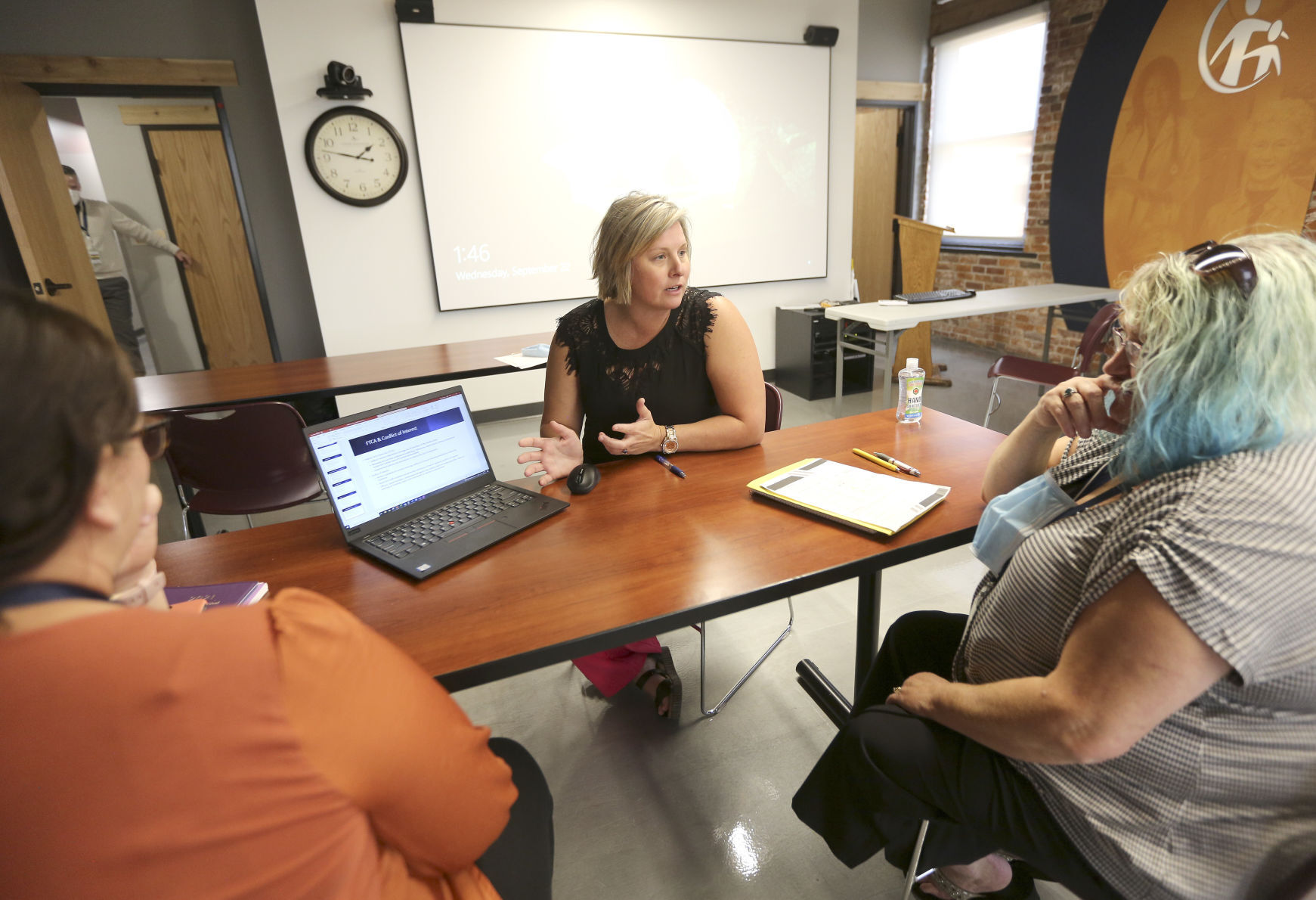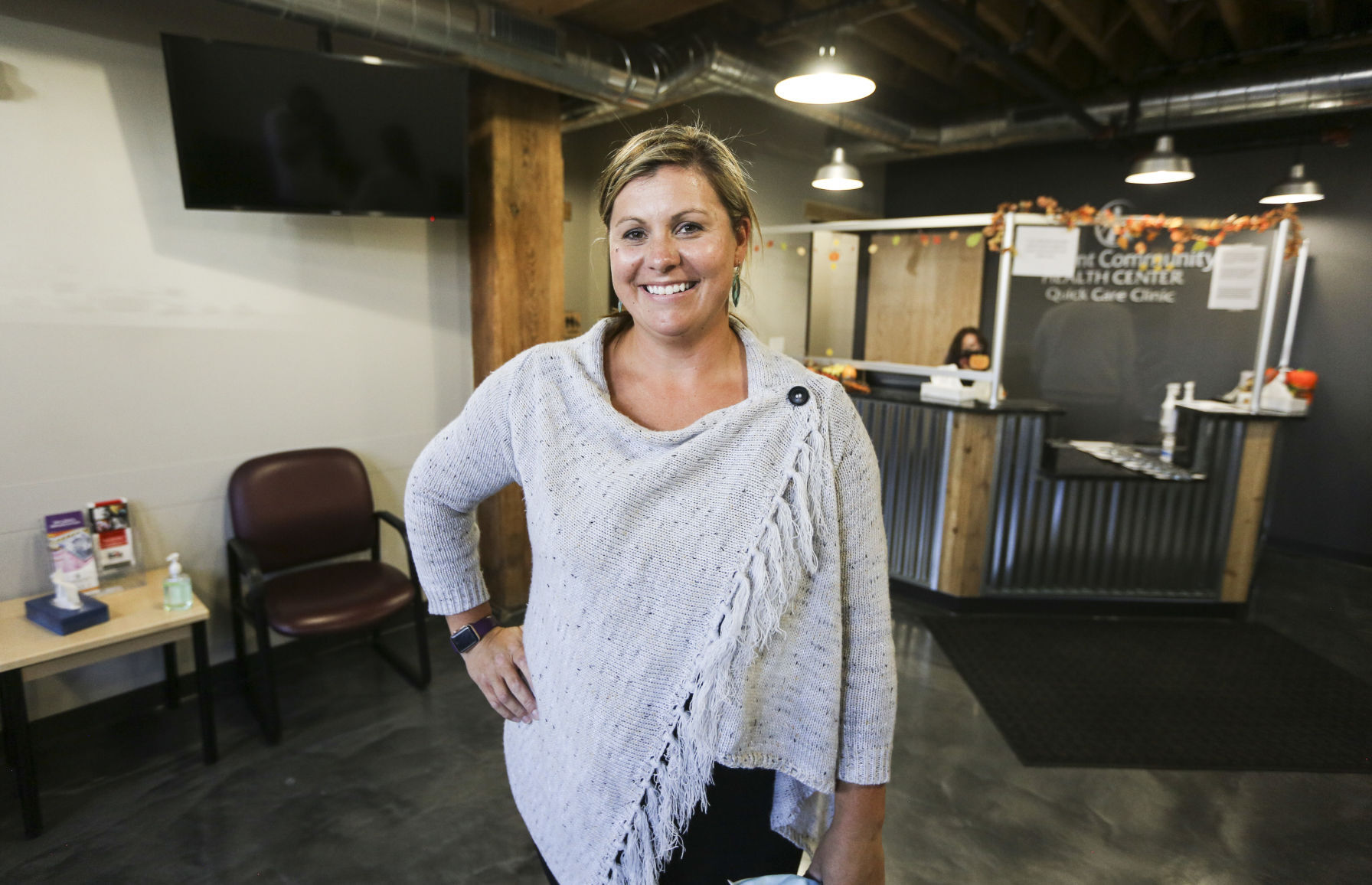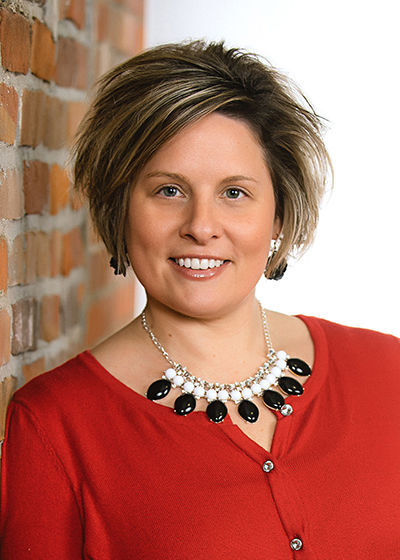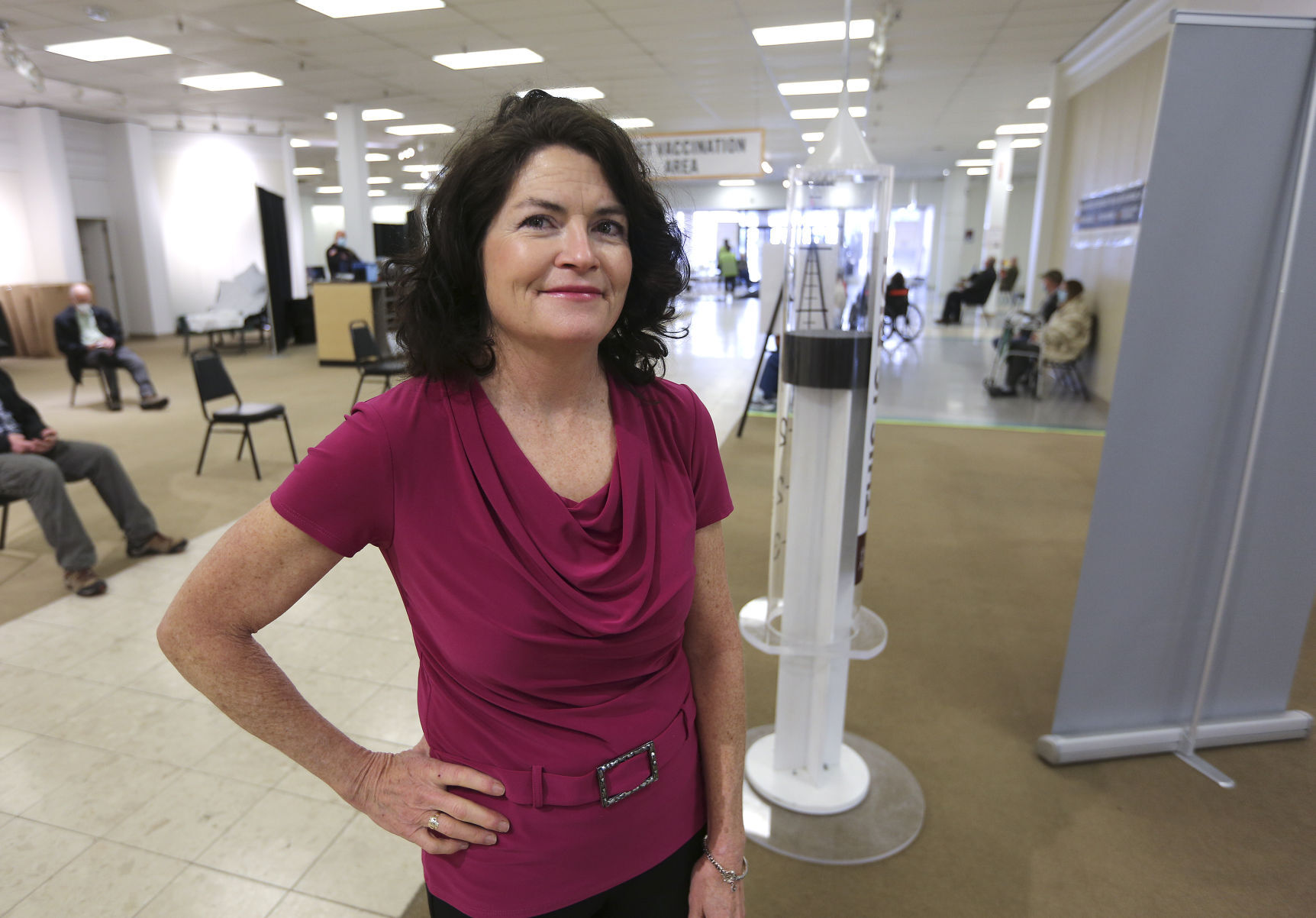In the 15 years since opening, Crescent Community Health Center in Dubuque has become a one-stop shop for medical, dental and mental health care and related services for a diverse group of area residents.
The health center that started in 2006 with just a 16-person staff now operates on four floors of its renovated building at 1690 Elm Street, Suite 300. At full staff, it will employ 120 people, who work to serve a clientele that includes minority and other underserved populations, regardless of whether they have health insurance.
“Having been here for 15 years now, the community knows we’re a trustworthy, quality care provider, which will be here to talk to them in ways that some providers just can’t,” said Chief Operating Officer Brooke Gomez.
Crescent leaders recently reflected on the growth that the last 15 years have brought.
The center was born of a need identified by area health and community leaders who included Mary Rose Corrigan, the City of Dubuque’s public health specialist and a member of Crescent’s Board of Directors.
“We had started a free medical clinic at the Dubuque Rescue Mission,” she said. “Doctors and providers donated supplies. It just served people who had access to no health care at all.”
It became clear that the need for such services far outweighed the capacity of that clinic, Corrigan said. Community leaders, volunteers, local philanthropists and medical professionals found a solution in the Federally Qualified Health Centers program, through which the federal government funds community-based health centers to provide primary care in underserved areas.
After securing funding from the Iowa Legislature to get a center up and running, Crescent opened its doors in October 2006 with a 16-person staff.
From the beginning, Crescent has used a sliding scale to charge individuals without health insurance or who are low income.
“There are a lot of people who fall through the cracks in health care,” said Crescent family nurse practitioner Jennifer Zalaznik. “And they’re coming from everywhere.”
Patti McDowell was an early patient at Crescent, having moved from the clinic at the rescue mission.
“My husband lost his job 14 years ago,” she said. “We had his insurance, so we were left without. It was extremely helpful to be able to go down and see a doctor, where it went by your income. It’s been a huge blessing for our family, particularly in the last year.”
The Crescent that exists now is far beyond that which opened in 2006. Patients can receive medical, dental and brain health care all in one place, along with wellness and nutrition education or guidance in finding insurance.
“For me, it has far exceeded our initial planning and thoughts,” Corrigan said.
Services and staff have increased exponentially, especially since the center moved into its current building in 2019.
“When we moved into the building, we occupied just floors three and four,” said Board of Directors Chairwoman Ann Decker. “But with (leadership’s) vision to offer one-stop patient care, before long they had devoted the second floor to brain health. Now, we have urgent care on the lower level. The last 24 months have shown so much growth, even through the challenge of COVID.”
Dental assistant Diana Gau has worked for Crescent since it opened and said the center’s consistency and growth have been key to helping a group of people who had never received such help before.
“A lot of the population we see, preventative stuff, because it doesn’t hurt, they put it off,” she said. “In the beginning, it was every single patient — We had to change their mindset to be on a preventative path rather than a ‘Wait until it hurts’ mindset. Now, we’re actually starting to accomplish what we set out to do for people.”
Much of Crescent’s growth, Decker said, is thanks to “very strong and generous” donors, who have consistently increased their giving to the health center.
“They see and understand the need for Crescent to keep our community healthy,” she said. “Our patient base has grown significantly over the years. Our community support has grown with that.”
Corrigan said the federal government also have steadily increased its support for Federally Qualified Health Centers, including Crescent.
“The Health and Human Services Department has recognized that it is a valuable model — that 51% of the board must be consumers, that there is always a fee for service, although it is largely nominal,” she said.
Another component of the federal program is a requirement that community health centers employ significant numbers of area residents.
Crescent found another mission in offering services specific to the needs of Dubuque County’s growing Marshallese and Pacific Islander population. Zalaznik said people arrived at the clinic this week straight from the Marshall Islands because acquaintances told them about Crescent.
Gomez said Crescent recently has seen more patients from rural areas farther from Dubuque. Those patients’ needs are another Crescent now tries to fill.
“We are beginning to strategize different ways we can reach those patients, rather than them having to come to us,” she said.





